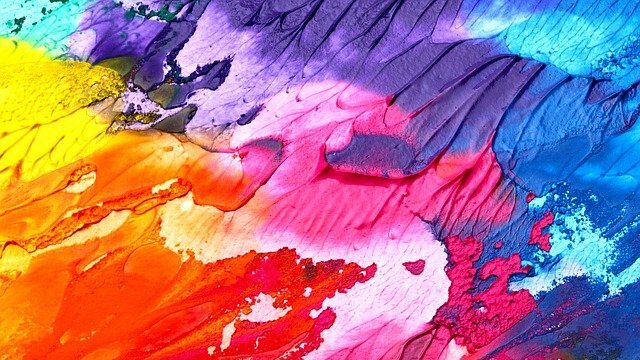Today’s topic is idioms related to the word “color”.
今日のトピック は、色(いろ)の慣用句(かんようく)です。
Color in Japanese is 色(いろ).
However, did you know that the word 色 means not only colors but can also refer to a romantic relationship between men and women? It can even carry a sexial connotation.
For example:
色っぽい
It means “sexy”.
ぽい here is a suffix that can attach to a noun or an adjective to mean something of that sort. Its function is similar to “-ish” in English.
For example, if one of your friends has red eyes, you can ask:
どうしたの?目(め)が赤(あか)っぽいよ?
What happened? Your eyes look reddish.
Of if someone is acting childish, you can call him/her, こどもっぽい。
Going back to our topic, the i-adjective 色っぽい meaning sexy, can be used for both men and women.
For example:
レオナルドディカプリオって、すごく色っぽいよね。
Leonardo DiCaprio is so sexy, isn’t he?
Speaking of Leonardo DiCaprio, men like him can be called like this:
色男(いろおとこ)
It means a lady killer, someone very handsome who can get all the women he wants.
However, this term is limited to men and we rarely say 色女.
色気(いろけ)
It means “sexual attraction or sex appeal”.
色気(いろけ)がある means to have sex appeal, to be sexually attractive.
色気(いろけ)がない is the complete opposite – to not have any sex appeal.
Someone can be beautiful but not sexually attractive, in which case you can say:
彼女(かのじょ)は、とても美人(びじん)なのに、全然(ぜんぜん)、色気(いろけ)がないよね。
好色(こうしょく)
It means someone who likes sex. In kanji, it literally means to like color or “sex”.
There is a proverb that says:
英雄好色(えいゆうこうしょく) or 英雄(えいゆう)色(いろ)を好(この)む
It means all the heros or great men like sexual pleasure.
色目(いろめ)を使(つか)う
It means to use one’s sexual eyes
One’s sexual eyes would be usually to seduce someone or to get what s/he want.
For example if someone is making goo-goo eyes at your boyfriend, you can warn her by saying:
私(わたし)の彼(かれ)に、色目(いろめ)を使(つか)わないでよ!
Don’t seduce my boyfriend with your eyes!
色眼鏡(いろめがね)
It literally means colored glasses but what does it mean figuratively?
When you wear colored or tinted glasses, it may happen that you may not be seeing things in its actual colors. When you take them off and you get to see the real colors, you’d be surprised what you were seeing before was not the same as reality.
So 色眼鏡(いろめがね)をかける means you look at something with your prejudice or having a biased-view.
For example, you want to take on a big project at work. You think you can do it, you know you will be good at it, but your boss is not giving you a chance because you are a woman. Then you can say to him:
女(おんな)だからって、色眼鏡(いろめがね)で見(み)ないでください!
Don’t judge me with prejudice just because I’m a woman!
By the way, to take off glasses in Japanese is メガネを はずす
Notice it’s not ぬぐ as in 服(ふく)をぬぐ to take off clothes.
We have different verbs meaning to wear and to take off depending on the items. So for glasses, we use the verbs はずす or とる.
色眼鏡(いろめがね)をはずして物事(ものごと)を見(み)ることは、大切(たいせつ)ですね。
It’s important to look at things without prejudice – by taking off our tinted glasses.
目の色が変(か)わる
It means that “the color of the eyes change”.
This expression is used when a person completely changes his persona – maybe when he sees something he likes or is interested in, he gets really excited about it.
For example:
私の弟(おとうと)は、ゲームをしている時(とき)は、目の色が変わる。
My little brother becomes crazy when he plays video games.
彼女は、お金の話になると、目の色が変わる。
She starts acting completely different when we started talking about money.
いろいろ(な)
It means various; different kinds of; all sorts of.
It’s a na-adjective so when we modify a noun, we add な after いろいろ and say いろいろな + noun.
For example:
世界(せかい)には、いろいろな色があります。
In this world, there are all kinds of colors.
There is also a proverb:
十人十色(じゅうにんといろ)
It literally means “ten people, ten colors”.
と is another way to say じゅう = 10.
The meaning is: Different strokes for different folks.
I hope this post was helpful. Please leave us a comment if you have any question or suggestion!
